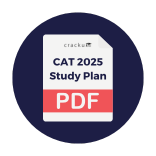The passage given below is followed by ten questions. Each question has four alternative answers, out of which only one is correct. Mark the correct answer in OMR Sheet.
Those responsible for teaching young people have resorted, at different periods of history, to a variety of means for making their pupils learn. The earliest of these was the threat of punishment, which meant that the pupil who was slow, careless or inattentive risked either physical chastisement or the loss of some expected privilege or treat. Learning was thus, to
some extent, associated with fear, particularly in the minds of those who found certain subjects hard to master. At a later period, pupils were encouraged to learn in the hope of some kind of reward. This often took the form of marks awarded, daily or weekly for the work done, and sometimes of prizes given at the end of each year to the best scholars. Such a system appealed to the competitive, spirit, but it often had just as depressing an effect as the older system of punishment on the slow but willing pupil.
These two systems suggest that teachers felt that their pupils had to be either compelled or bribed to learn. In the nineteenth century, however, there sprang up a different type of teacher, passionately convinced that learning was worthwhile for its own sake, and that the younger learner’s principal stimulus should be neither anxiety to avoid a penalty nor ambition
to win a reward, but sheer desire to learn. These teachers used their best endeavors to render the process of learning pleasant and, where this was not possible, to slow that hard plodding would yield results of practical value to the learner. Interest, direct or indirect became the keyword of instruction and so it has remained.
The earlier methods, however, though now practiced less frequently, have not been completely abandoned. If you walk into a modern classroom that contains all the most up-to-date equipment, you may observe a highly trained teacher inspiring boys and girls with their own enthusiasm for the subject. Yet you will probably find that he awards marks for the work done by his pupils and you will certainly find that the careless or inattentive pupil is liable to be punished.
Which of the following is the most suitable title for the passage?
Create a FREE account and get:
- Download Maths Shortcuts PDF
- Get 300+ previous papers with solutions PDF
- 500+ Online Tests for Free

